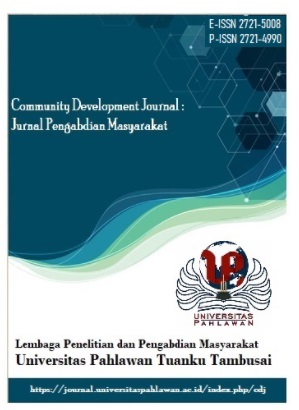THE INFLUENCE OF THE USE OF SONGS ON THE ABILITY OF PRONUNCIATION IN ENGLISH SUBJECTS IN THE ERA OF INDEPENDENT LEARNING
DOI:
https://doi.org/10.31004/jrpp.v7i3.31850Keywords:
Song, Pronunciation, Merdeka BelajarAbstract
Pronunciation is a term for pronouncing words correctly. Teachers should provide opportunities for students to actively participate in the pronunciation learning process. Teachers should have the ability to choose the most suitable approach to implement and use in their learning space. This study aims to explore the effect of the use of songs in English learning on students' pronunciation ability in the era of Merdeka Belajar The research method used was a randomized control experiment with participants consisting of two groups: an experimental group that received learning with songs, and a control group that received conventional learning.Data were collected through pre- and post-intervention tests, as well as participant observation. The results showed that the use of songs in English learning significantly improved students' pronunciation ability compared to conventional learning. These findings support the use of songs as an effective learning strategy in improving students' English skills in a dynamic educational era such as Merdeka Belajar. The pedagogical implication of this research is the need for wider integration of music media in the English curriculum, as well as training for teachers to utilize songs effectively in learning. The study involved seventy students. Samples were collected through cluster random sampling technique. The authors analyzed the data using two classes, X.E.1 and X.E.2. The authors used an oral test with a real rate of 5%. The results of the analysis showed that H0 was rejected. This means that students' pronunciation abilities before and after using the song method are different.References
Alrajafi, G. (2021). The use of English in Indonesia: status and influence. SIGEH ELT: Journal of Literature and Linguistics, 1(1), 1-10.
Fathin, D. U., &; Sya, M. F. (2022). The teacher's view of students who have difficulty in English pronunciation in elementary school. KARIMAH TAWHID, 1(4), 468-473.
Maretha, C. (2021). Meaning Relationship of the Verb Hope and Wish in English. SIGEH ELT: Journal of Literature and Linguistics, 1(1), 46-63
Pontillas, M. S. D. (2020). Reducing The Public Speaking Anxiety Of ESL College Students Through Popsispeak. 3L, Language, Linguistics, Literature, 26(1).
Pontillas, M., &; Talaue, F. (2021). Levels of Oral Communication Skills and Speaking Anxiety of Educators in a Polytechnic College in the Philippines. Journal of Education, Management and Development Studies, 1(1), 24-32.
Rahayu, W. (2023). USE AND MEANING OF INDONESIAN LANGUAGE IN THE ERA OF GLOBALIZATION: Globalization, Indonesian, Foreign Languages. Journal of Multidisciplinary Research, 2(1), 158-162.
Sudjana. ( 2005). Statistical Methods. Bandung : Tarsito
Syaputri, W. (2014). Pronunciation errors made by senior high school students in reading English texts aloud. English Education Journal, 4(1)
Syaputri, W. (2019, March). First Language Morphological Interference of English Language Learners (EFL). In Seventh International Conference on Languages and Arts (ICLA 2018) (pp. 617-619). Atlantis Press.
Downloads
Published
How to Cite
Issue
Section
License
Copyright (c) 2024 Reni Apriani

This work is licensed under a Creative Commons Attribution-ShareAlike 4.0 International License.






